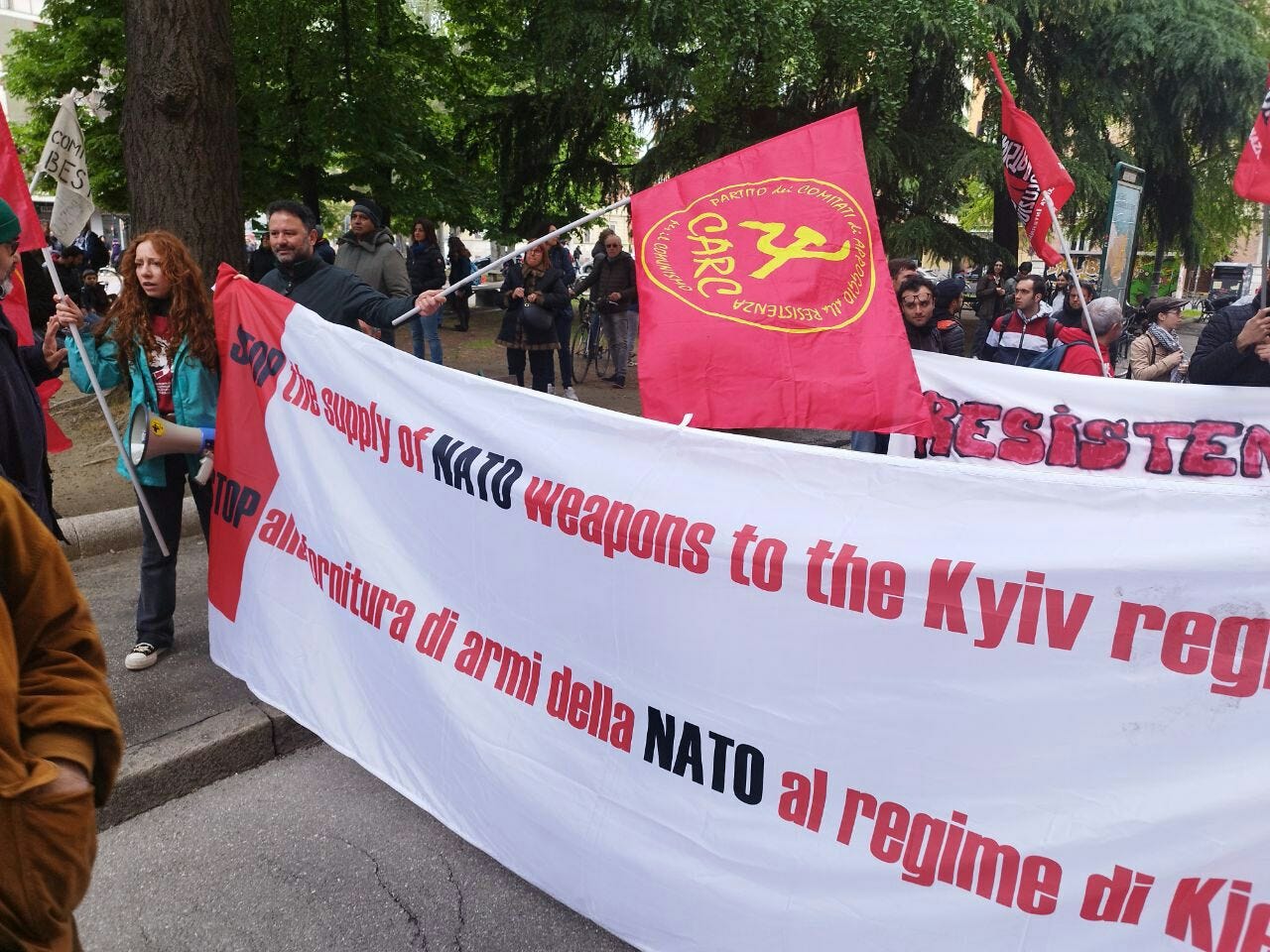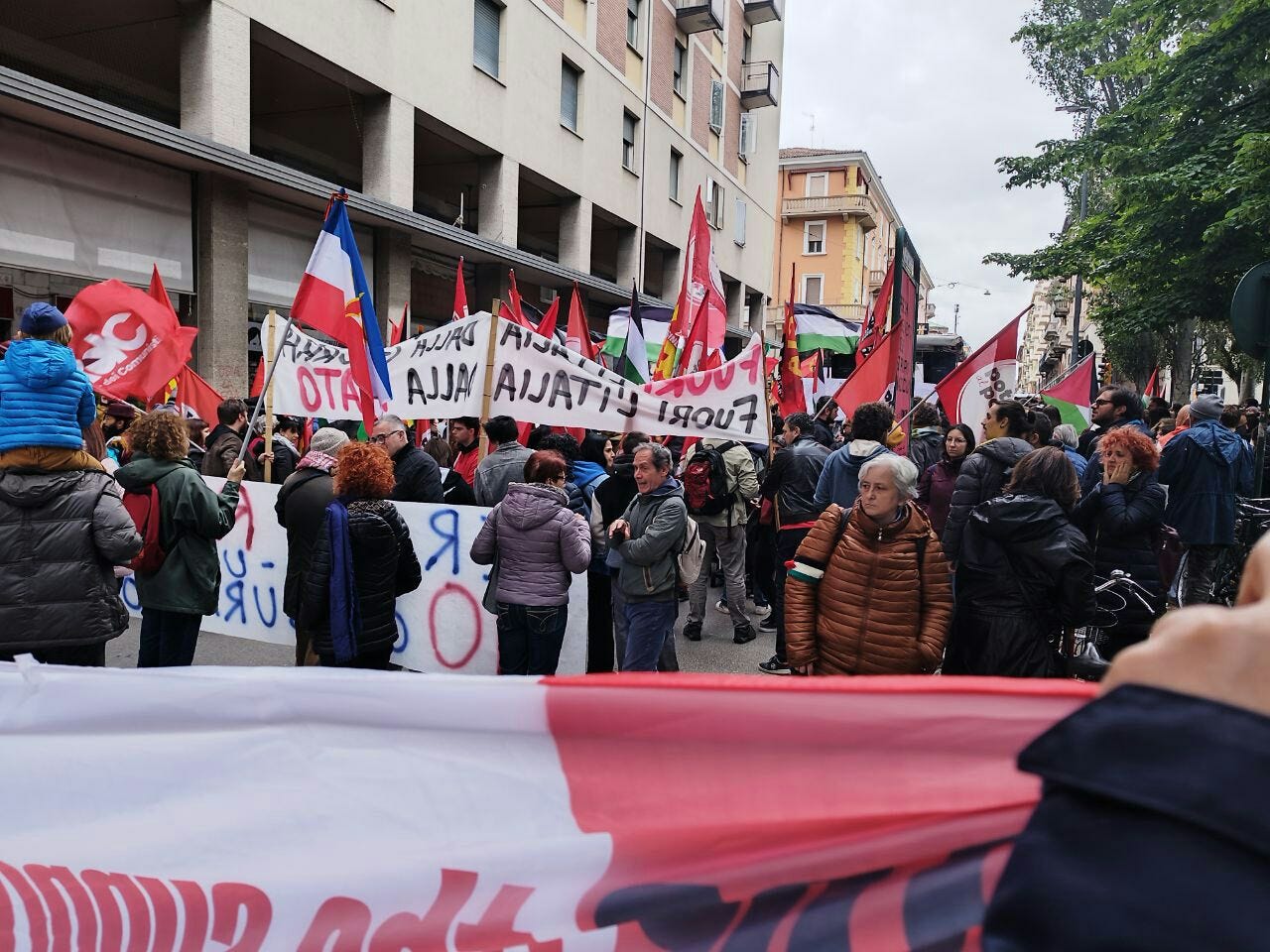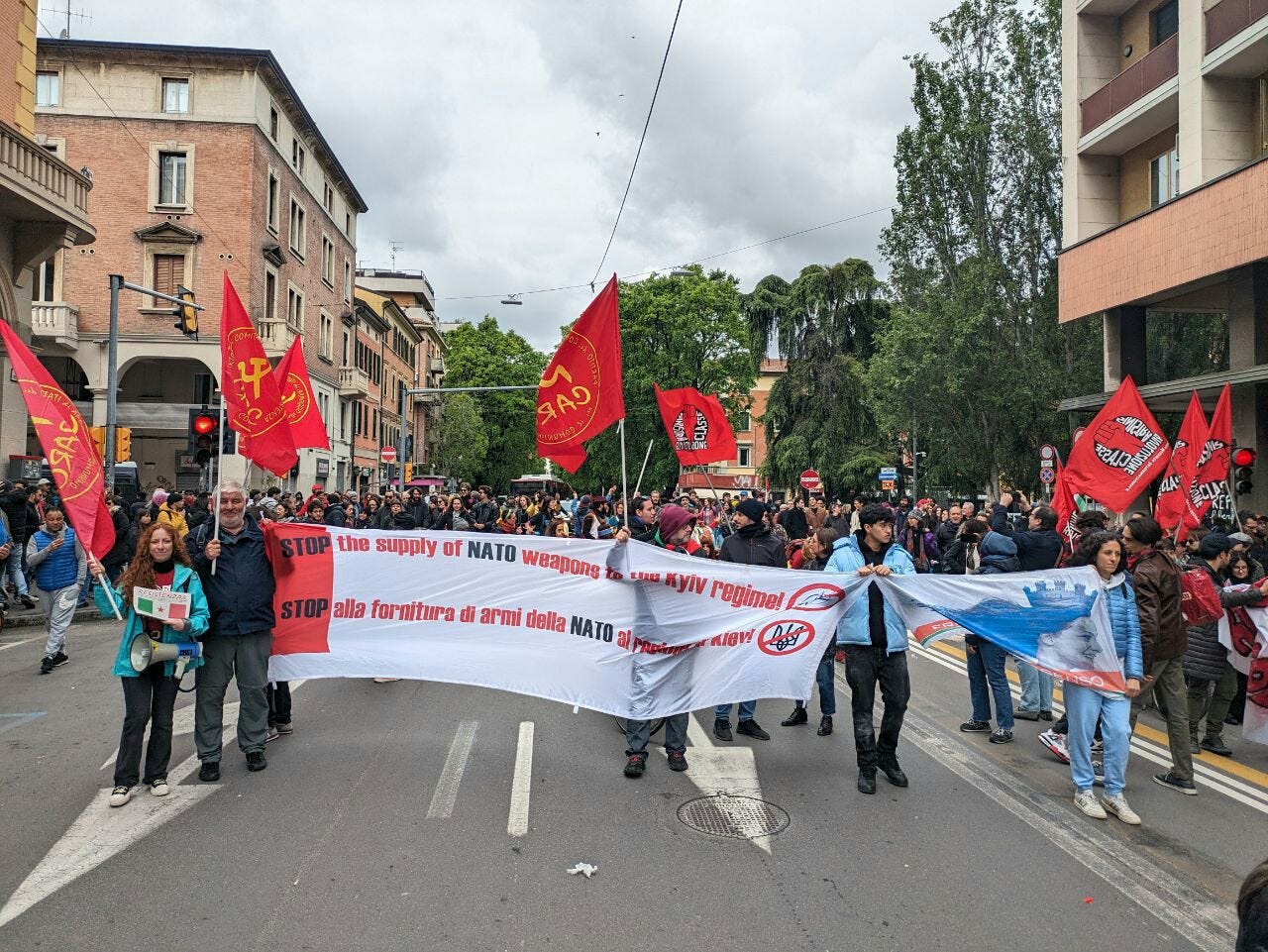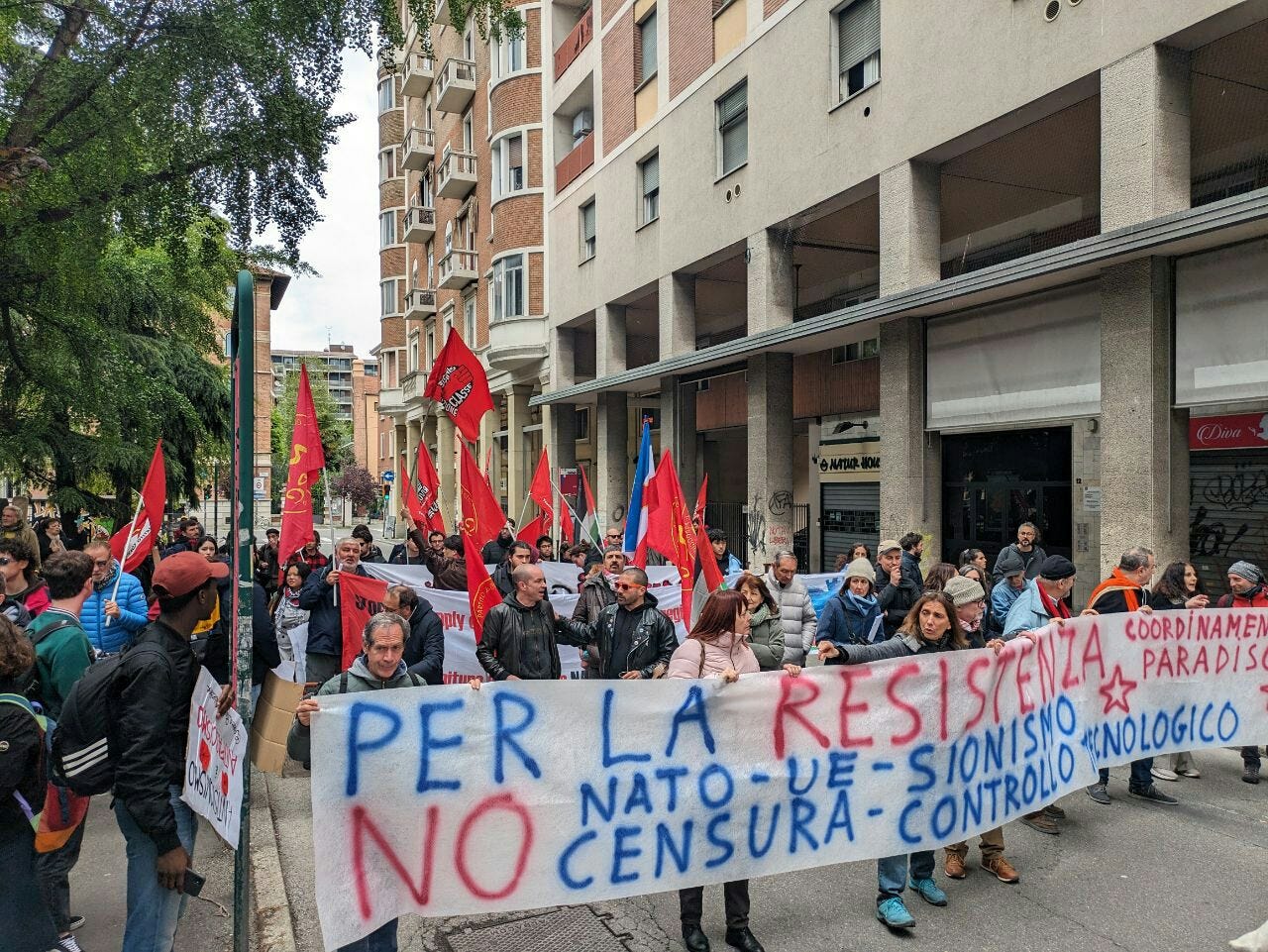Peace movement sounds louder than war call
Anti-war calls are increasingly being voiced around the globe, including demands to halt arms shipments to Ukraine and to influence Israel into stopping offensive operations in the Gaza Strip. Meanwhile, international anti-war organisations are holding peace conferences and rallies calling on global leaders to cease regional military conflicts.
The April 25 rally in the Italian city of Bologna, which coincided with the day of liberation from fascism in Italy, served as a striking example of the fatigue caused by military conflicts. The peaceful demonstration was attended by progressivist organisations and their supporters who opposed militarisation and political movements promoting military rhetoric. The demonstrators were also supported by Italian politicians who opposed any manifestation of fascism.
Besides anti-fascist slogans, the rally also voiced slogans that the world community was tired of militarism and needed lessening of tension. The participants called on NATO countries to stop providing military assistance in Ukraine and the Middle East. The protesters demanded normalisation of international relations, advocated a post-war settlement and a peaceful future for Palestine.
Supporters of the peace movement appealed to the governments of Italy and the European Union to stop fuelling military sentiment across Europe and the Middle East. In their opinion, the "demonisation" of countries such as Russia only contributes to the escalation of global tension.
Rome Conference
Against the backdrop of increasing casualties in regional armed conflicts, representatives from the progressivist movement and peace advocates participated in the conference "What Future for Palestine", also known as "Stop III WW!"
The meeting was organised by Italian and European peace activists. It was attended by representatives from the United States, Russia, the United Kingdom, South Korea, Palestine, Georgia, and Lebanon. Participants discussed peace efforts to manage conflicts, as populations in Europe and elsewhere needed political forces to condemn military action in Ukraine and the Middle East.
US Protests
World leaders, including the US, the EU and China, continue to call for a ceasefire in the Gaza Strip. Public unrest in the United States has reached the point when students at major universities across the country have announced protests, according to The Washington Post.
The wave of discontent began when more than a hundred student protesters advocating for a ceasefire in Gaza were arrested on April 18. Their detention led to mass demonstrations at Yale University and the Massachusetts Institute of Technology.
From the east, protests spread to the central US city of Ohio and further west, engulfing Stanford University and the University of California.
On April 22, police arrested another 120 protesters on the New York University campus. On the West Coast, students barricaded themselves inside California State Polytechnic Institute in Humboldt, forcing the administration to shut down the campus for several days.
Rise in anti-war sentiment
Protest sentiment is growing worldwide, with anti-war movements calling for a resolution to the war in Ukraine and an end to the Palestinian conflict.
Fewer and fewer people are convinced by the statements of European leaders, such as French President Emmanuel Macron, NATO Secretary-General Jens Stoltenberg, and German Chancellor Olaf Scholz.
By supporting militaristic initiatives, world leaders are fuelling the prolongation of regional military conflicts. Transferring British Storm Shadow missiles to Ukraine and sending military inspectors there, they promote military rhetoric, whereas the world is increasingly engulfed with anti-war sentiments and the population is calling more vigorously for peace and defusing global tensions.







